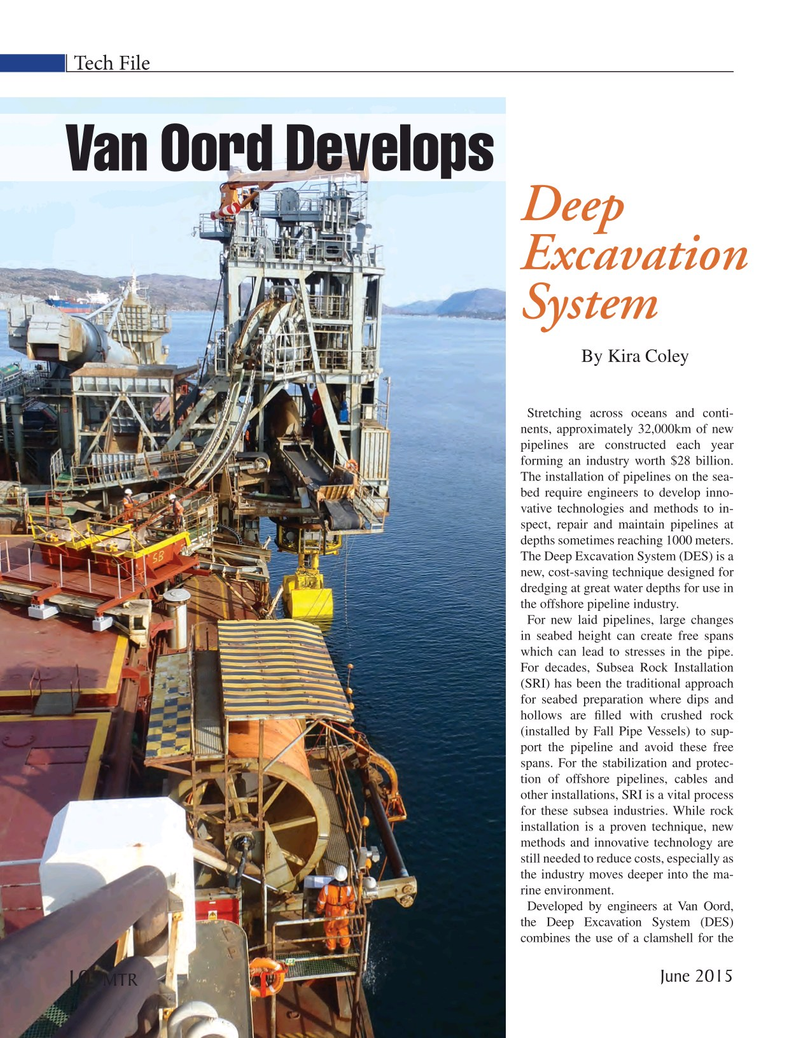
Page 10: of Marine Technology Magazine (June 2015)
Hydrographic Survey
Read this page in Pdf, Flash or Html5 edition of June 2015 Marine Technology Magazine
Tech File
Van Oord Develops
Deep
Excavation
System
By Kira Coley
Stretching across oceans and conti- nents, approximately 32,000km of new pipelines are constructed each year forming an industry worth $28 billion.
The installation of pipelines on the sea- bed require engineers to develop inno- vative technologies and methods to in- spect, repair and maintain pipelines at depths sometimes reaching 1000 meters.
The Deep Excavation System (DES) is a new, cost-saving technique designed for dredging at great water depths for use in the offshore pipeline industry.
For new laid pipelines, large changes in seabed height can create free spans which can lead to stresses in the pipe.
For decades, Subsea Rock Installation (SRI) has been the traditional approach for seabed preparation where dips and hollows are ? lled with crushed rock (installed by Fall Pipe Vessels) to sup- port the pipeline and avoid these free spans. For the stabilization and protec- tion of offshore pipelines, cables and other installations, SRI is a vital process for these subsea industries. While rock installation is a proven technique, new methods and innovative technology are still needed to reduce costs, especially as the industry moves deeper into the ma- rine environment.
Developed by engineers at Van Oord, the Deep Excavation System (DES) combines the use of a clamshell for the
June 2015
MTR 10
MTR #5 (1-17).indd 10 MTR #5 (1-17).indd 10 6/11/2015 9:04:03 AM6/11/2015 9:04:03 AM

 9
9

 11
11
